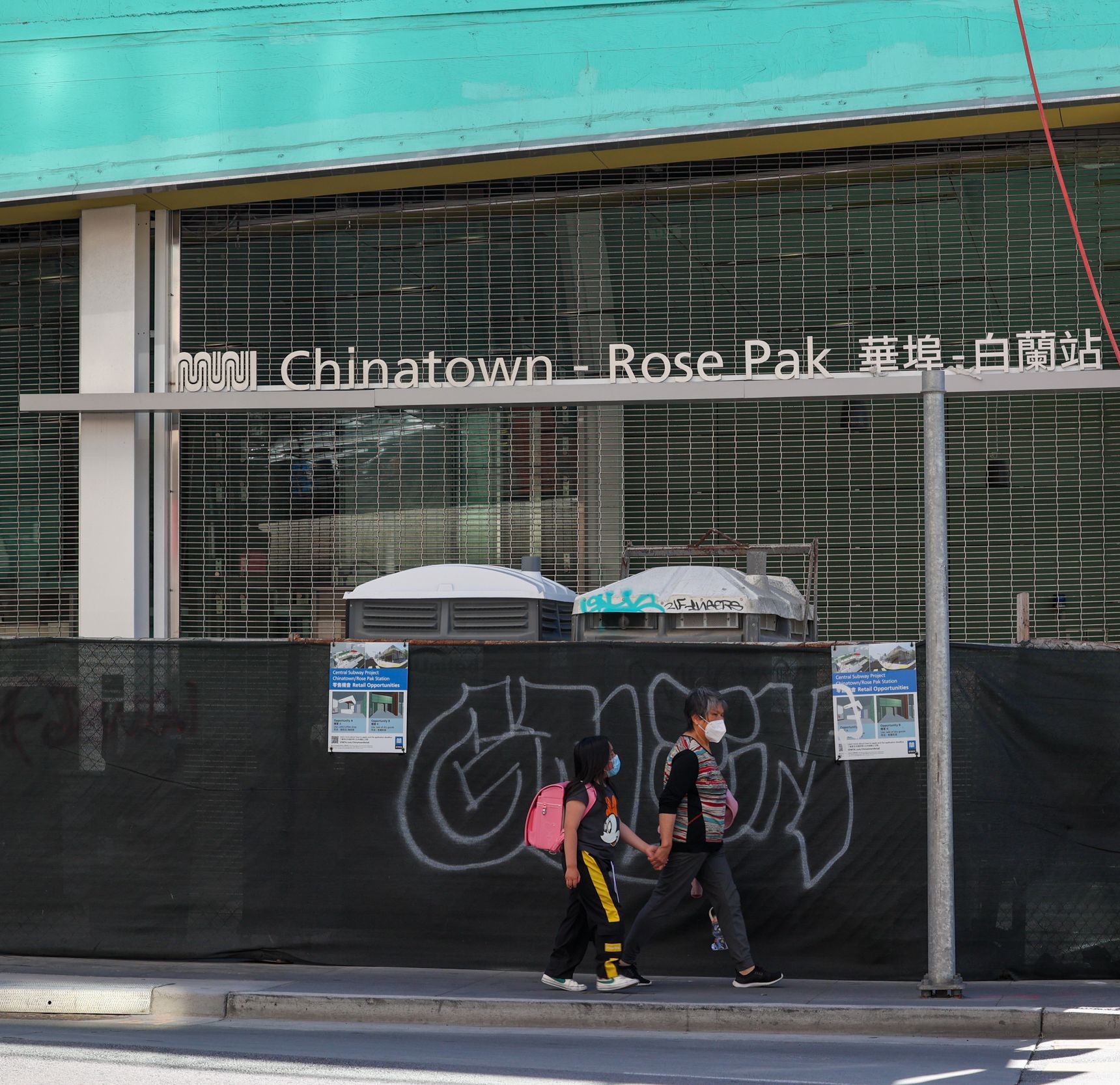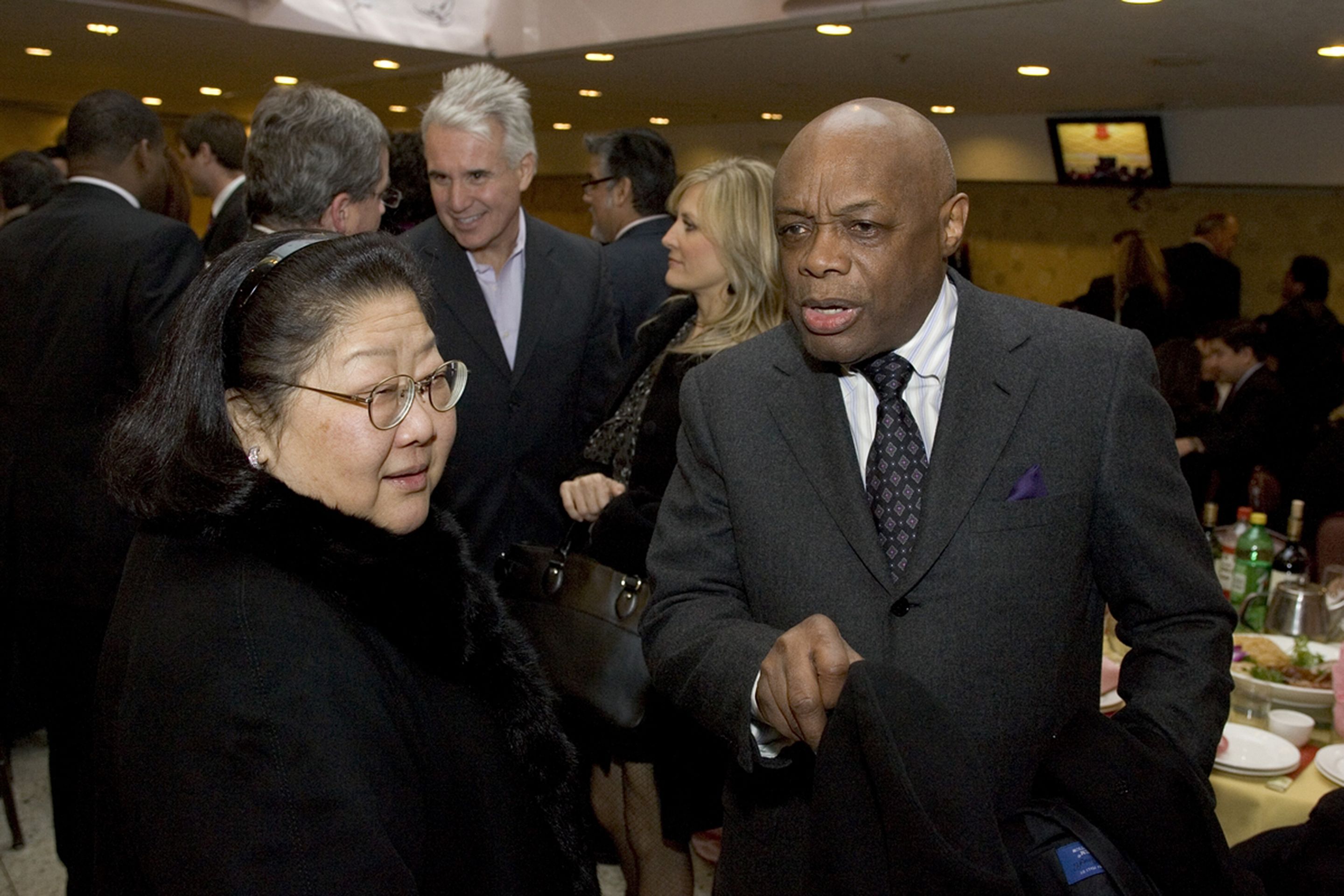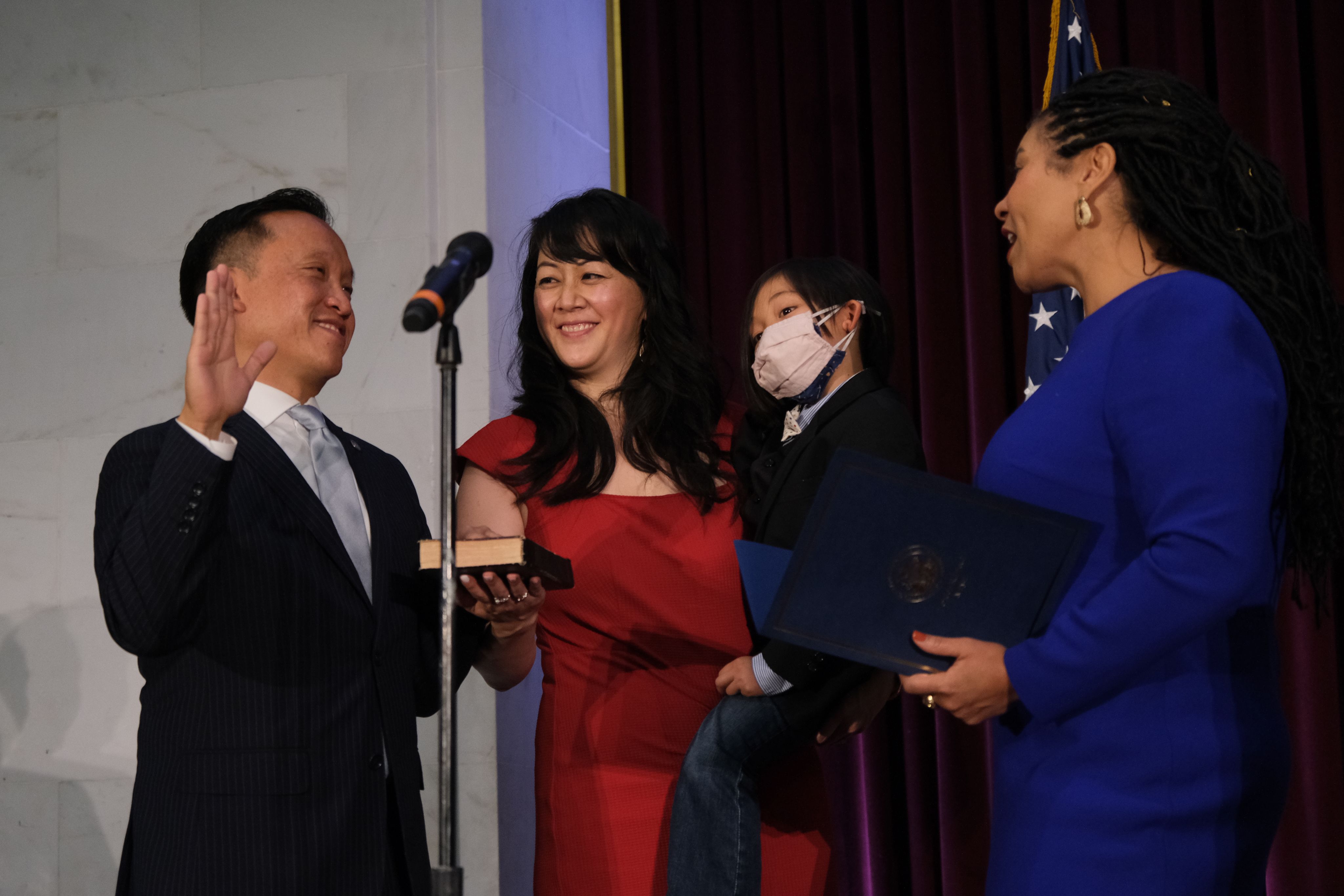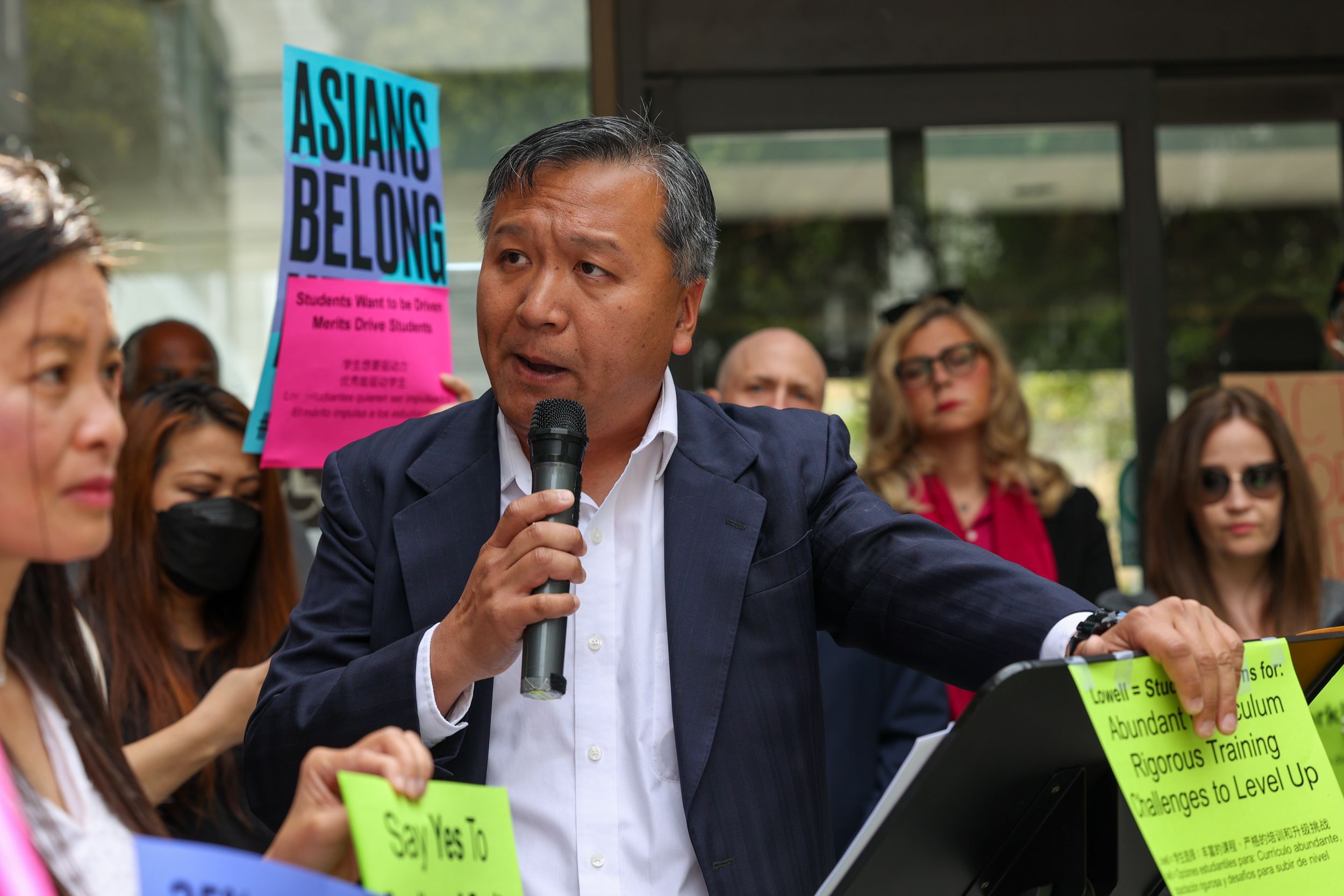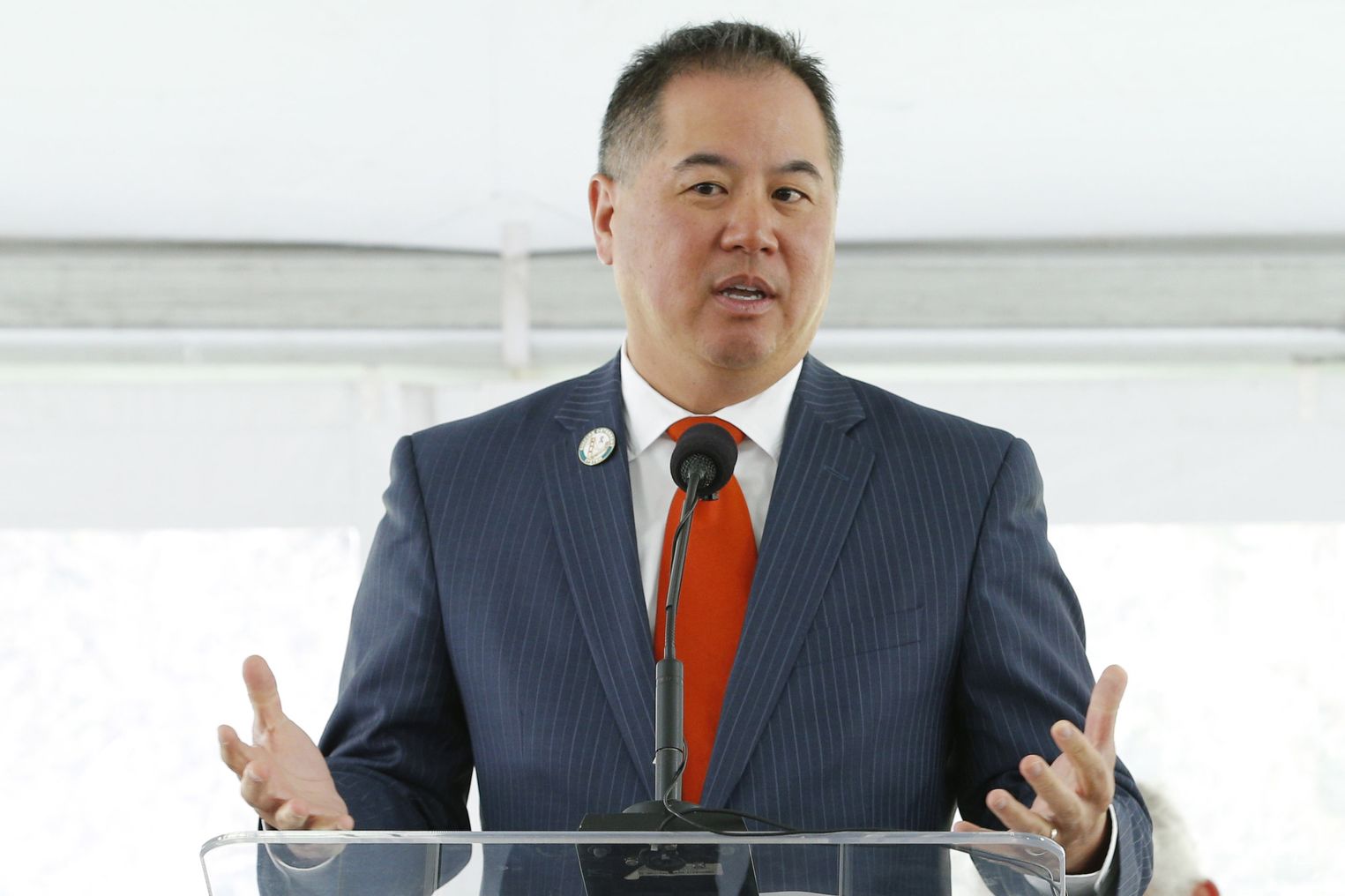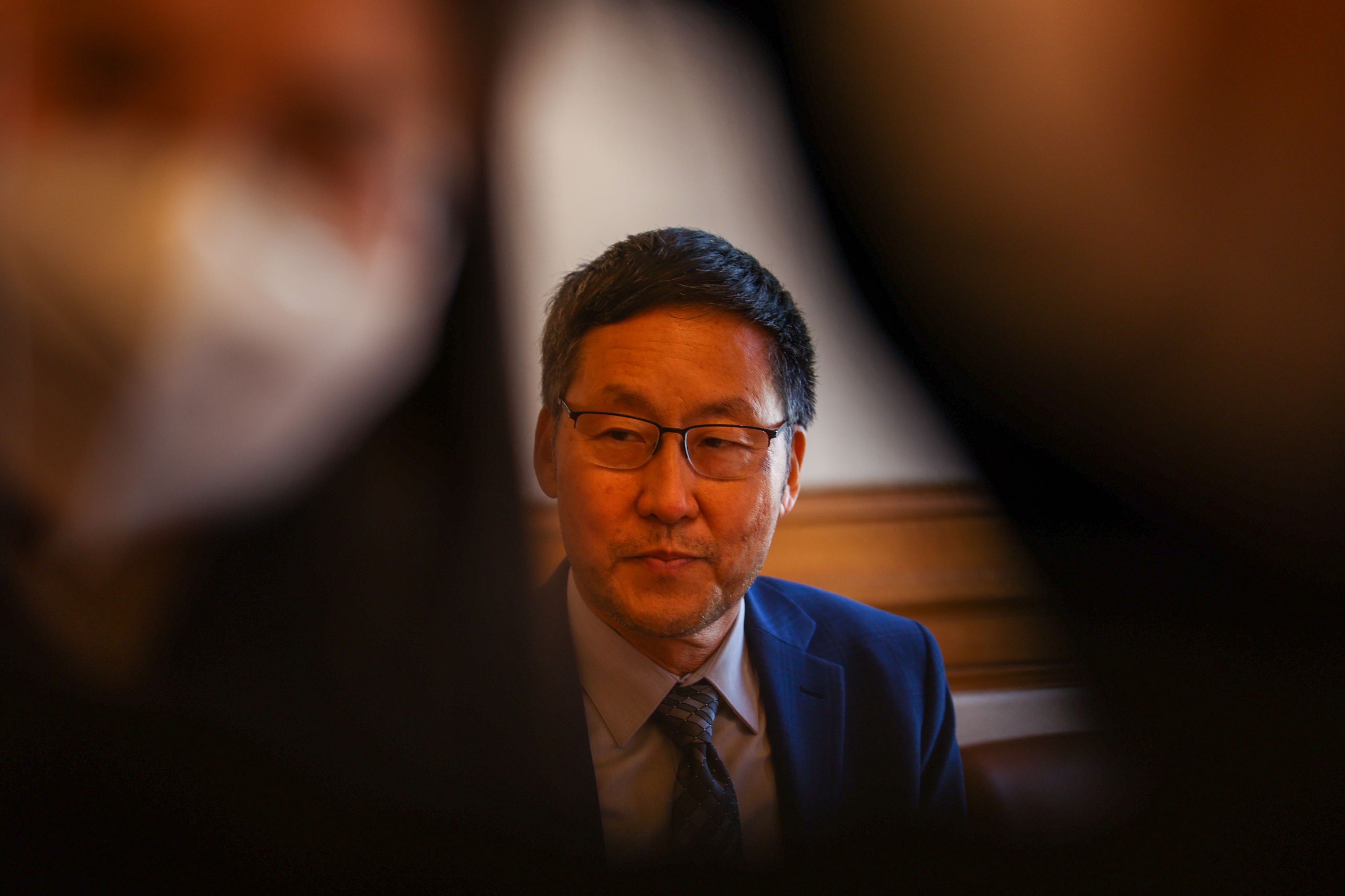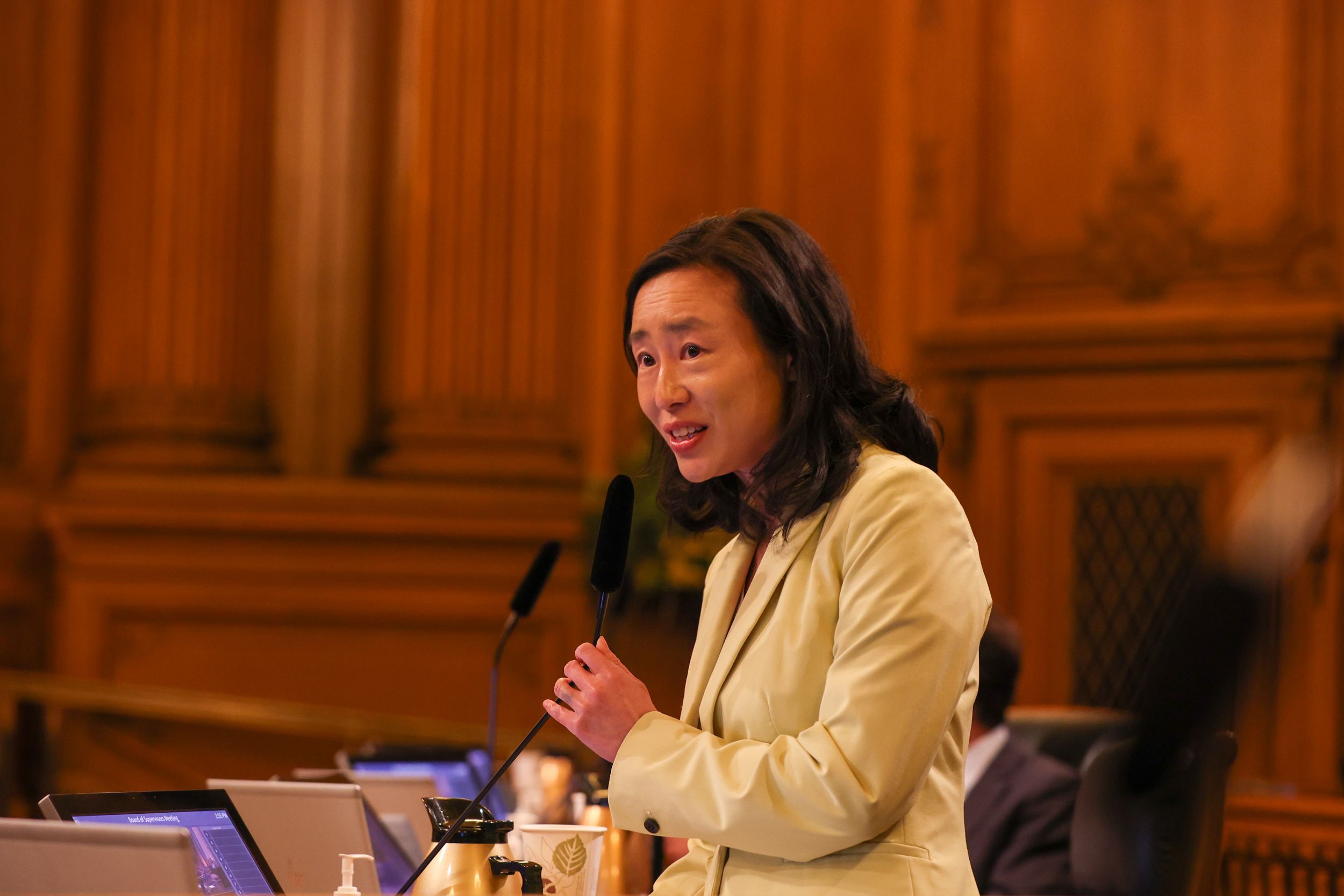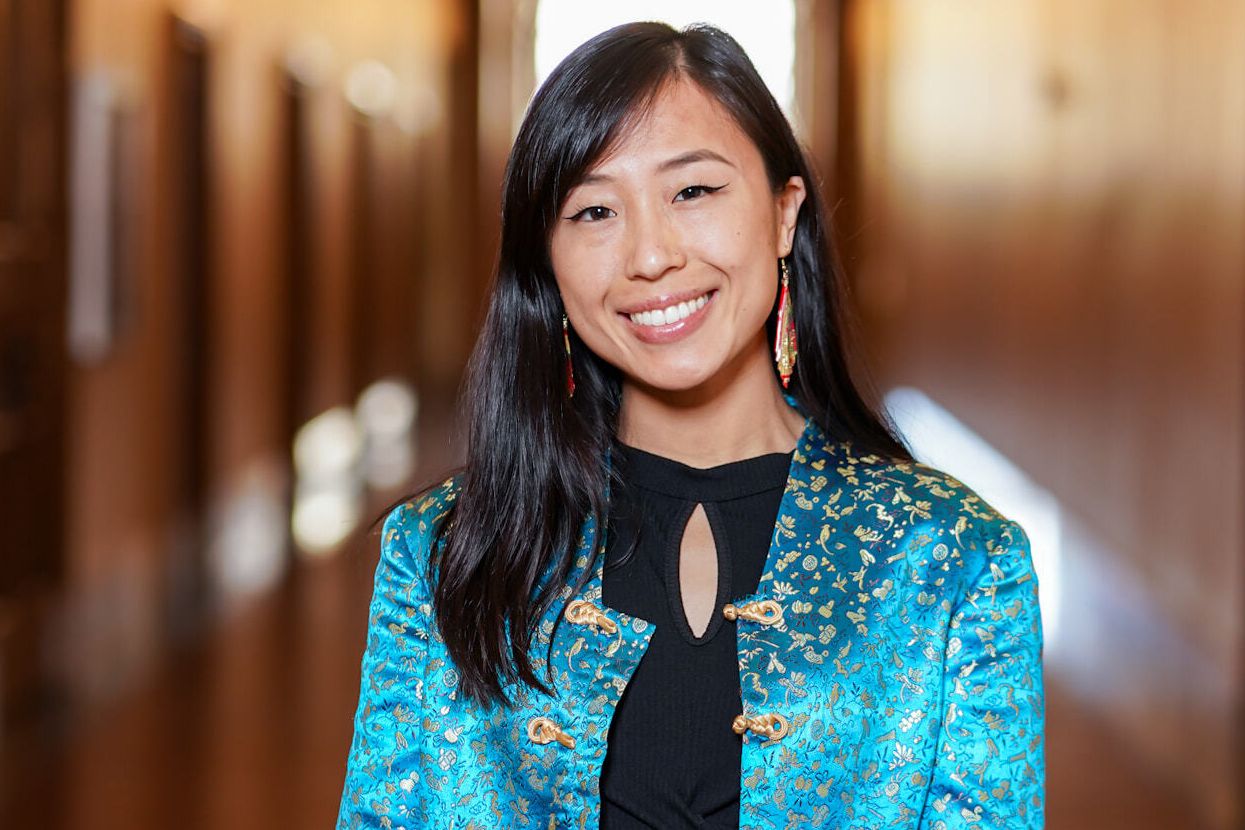Fractured: San Francisco's Chinese Political Leaders Struggle To Unify
By Han Li
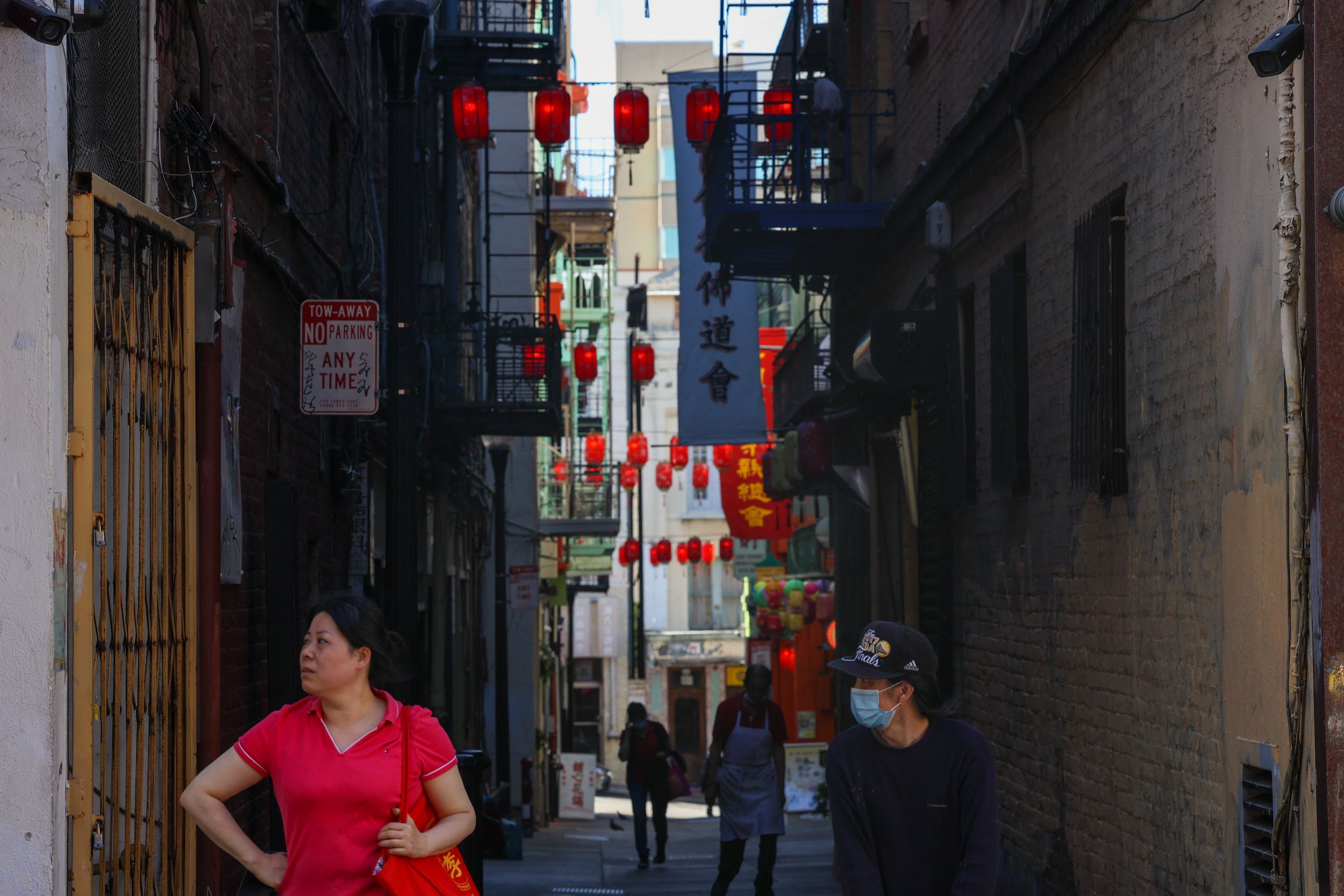
In 1995, Rose Pak thought it was time for San Francisco to have a Chinese American police chief, one who shared the ethnicity of nearly a quarter of the city’s residents. So she turned to her friend, Willie Brown, who had just been elected mayor.
Shortly thereafter, on his 1996 inauguration day, Brown named Chinatown native Fred Lau to lead the city’s 2,300-member police department, making him the first Asian American to hold the post.
“Rose got me to do that,” Brown said in an interview with The Standard, smiling at the memory of the unprecedented appointment. “I did what should have been done.”
That was far from the first or last time Pak exerted her considerable political sway to bend the city to her will.
A Chinese immigrant who married activism and boosterism to become the community’s dominant powerbroker, she was widely considered to be a substantial factor in Ed Lee becoming the city’s first Asian American mayor, a historic breakthrough in Asian American representation in San Francisco.
Rose Pak, left, and Mayor Ed Lee, right, in Chinatown on Sunday, Aug 26, 2012. | Sonja Och/San Francisco Chronicle via Getty Images
But since the death of Pak in 2016 and Lee’s passing a year later, San Francisco’s Asian community finds itself without leaders who can adequately bridge its complex ideological and generational divides.
A new wave of activism has emerged around issues including anti-Asian hate crimes and merit-based admissions at Lowell High School, but it has exposed a sharp split between established left-leaning elected officials and energized moderates who supported recalls of the school board and District Attorney Chesa Boudin.
Meanwhile, a younger cohort of Asian Americans is stepping up to advocate for the community—and that group is marked by political divisions similar to those experienced by the previous generation.
The Living Legacy of Rose Pak
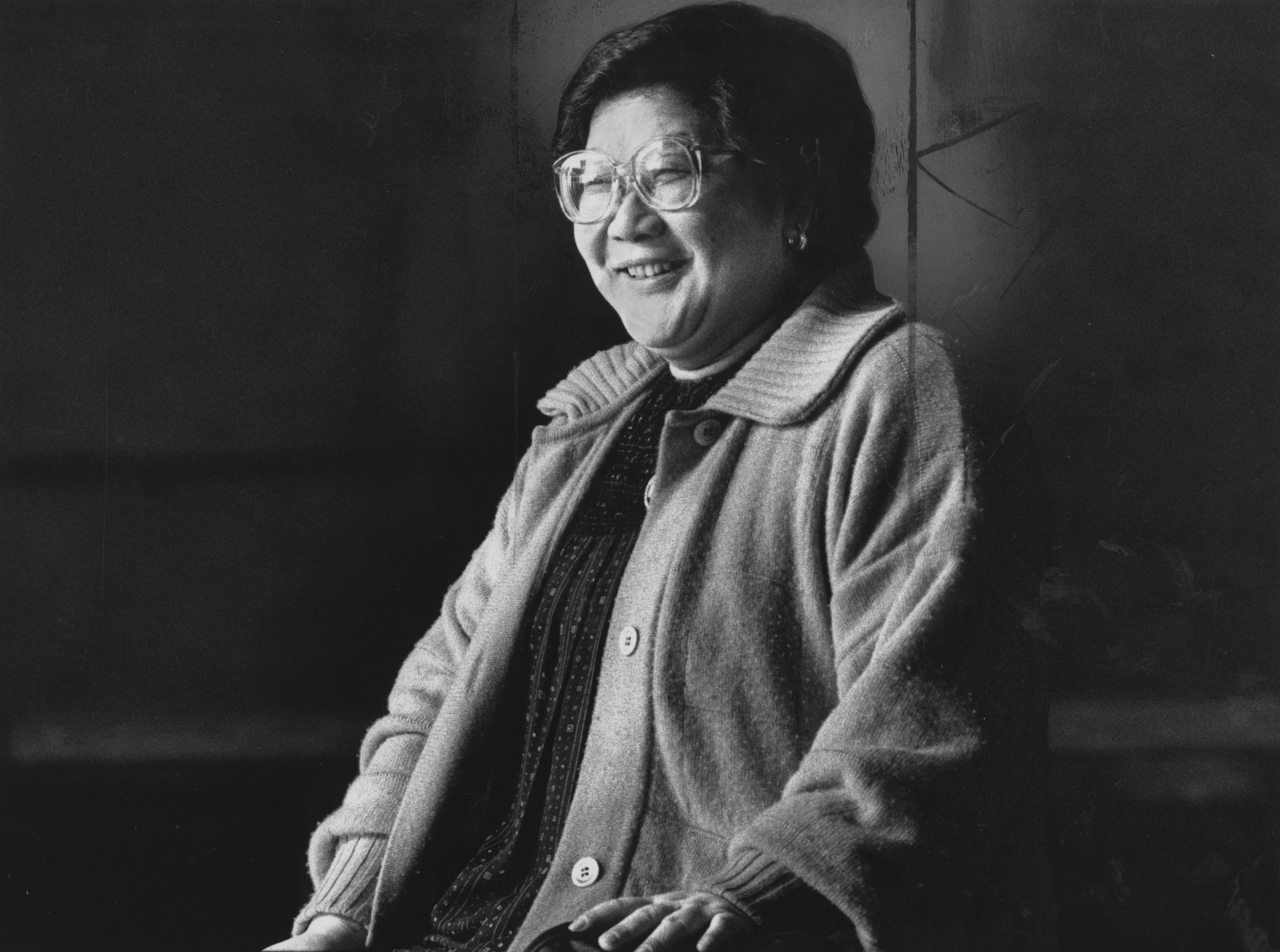
Just months from now, the long-awaited Chinatown subway station will celebrate its grand opening, with Rose Pak’s English and Chinese name, 白蘭, featured prominently at the front entrance.
“Rose was as important as any elected official—period,” Brown said. “And when you lose somebody like that, you obviously know you have to rebuild, and that takes a lot longer.”
Fiona and her grandmother(last names not given) stroll past the Chinatown - Rose Pak station, which is still under construction, in Chinatown of San Francisco, Calif., on Tuesday, June 22, 2022. | Camille Cohen/The Standard
Fiona and her grandmother(last names not given) stroll past the Chinatown - Rose Pak station, which is still under construction, in Chinatown of San Francisco, Calif., on Tuesday, June 22, 2022. | Camille Cohen/The Standard
Pak began her career as a journalist in San Francisco in the 1970s, later abandoning the profession in favor of activism. She forged deep roots in the Chinese community and built strong political connections, shrugging off allegations of ties to the Chinese government and acquiring extensive influence under the low-profile umbrella of the Chinese Chamber of Commerce.
Pak was also known for her fierce personality. Many in the community say the Chinese New Year Parade has become less interesting without Pak’s notoriously acerbic running commentary, which frequently involved hurling insults at politicians.
Rose Pak, left, and Willie Brown, right at an event honoring Jane Kim's election to the Board of Supervisors on January 7, 2011 in Chinatown in San Francisco, Calif. | Provided by Luke Thomas/FogCityJournal.com
Rose Pak, left, and Willie Brown, right at an event honoring Jane Kim's election to the Board of Supervisors on January 7, 2011 in Chinatown in San Francisco, Calif. | Provided by Luke Thomas/FogCityJournal.com
“It was Rose who started talking about how the Chinese community had been ignored for a long time in San Francisco and how their voting numbers had never been appropriately rewarded on behalf of candidates,” Brown recalled of their conversations about increasing Chinese representation in city politics. “Some of those positions had never been available to community-based people and people of color.”
A Slew of Firsts
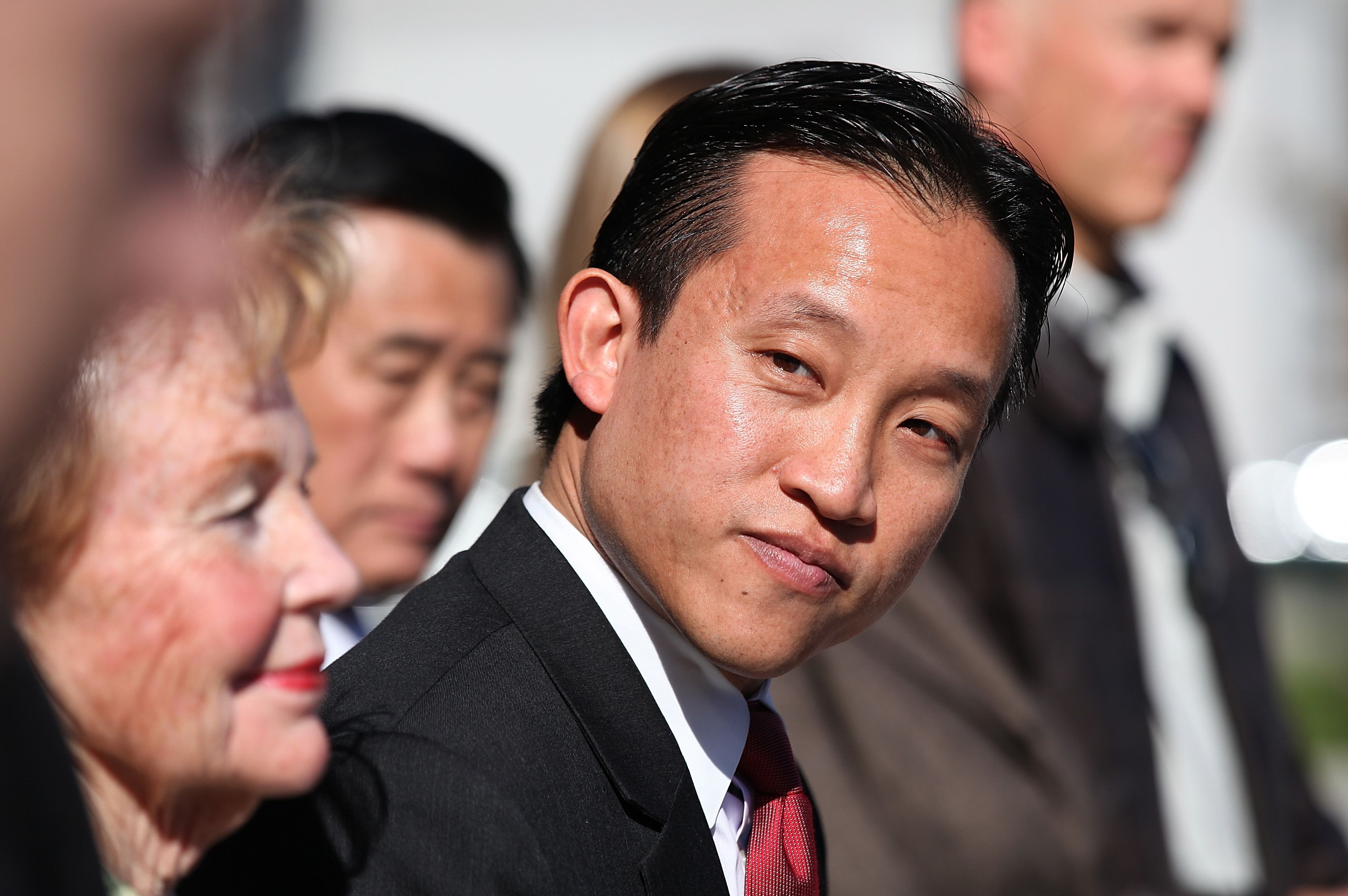
David Chiu has many “firsts” ahead of his titles in SF politics—the first Asian American supervisor to represent Chinatown (2009), the first Asian American to be Board of Supervisors president (2009) and the first Asian American assemblymember to represent the east side of the city (2015).
After 15 years in local electoral politics, he arrived at the City Attorney’s Office, becoming the first Asian American to hold the seat.
David Chiu, far left, is sworn in as San Francisco City Attorney on November 1, 2021 by San Francisco Mayor London Breed, far right, as Chiu is flanked by his wife Candace Chen, center left, and his 5-year-old son Lucas in San Francisco, Calif. | Camille Cohen/The Standard
David Chiu, far left, is sworn in as San Francisco City Attorney on November 1, 2021 by San Francisco Mayor London Breed, far right, as Chiu is flanked by his wife Candace Chen, center left, and his 5-year-old son Lucas in San Francisco, Calif. | Camille Cohen/The Standard
But so many firsts took a toll.
“It was a lonely experience,” Chiu said. “As a Chinese American political activist, there were not many of us.”
Chiu’s political generation achieved some big breakthroughs, though the wins have proven fleeting. At one point in 2013, there were four Chinese American supervisors and one Korean American supervisor, creating a significant voting bloc representing the Asian community.
That same year, Chinese American political leadership reached a historic peak in San Francisco, with three branches of government led by Chinese Americans. Ed Lee was mayor, Chiu was the Board of Supervisors’ president and Cynthia Ming-mei Lee was presiding judge of the San Francisco Superior Court.
But that high level of representation has begun to fade.
A Backwards Slide?
Chinese Americans still have significant political representation. But even with two sitting supervisors, a city attorney, a sheriff, a school board president and a city administrator (the highest-ranking non-elected city hall official), it’s not like it was under Pak and Lee.
“The disappointing fact is that the Chinese community is on the verge of losing decades of hard-won political gains,” said Doug Chan, a city commissioner and the board chair of the Chinese Historical Society of America.
He’s concerned about the “absence of the Chinese community from the process of government,” attributing the lack to “generational transition and churn” in the nonprofit and political sectors.
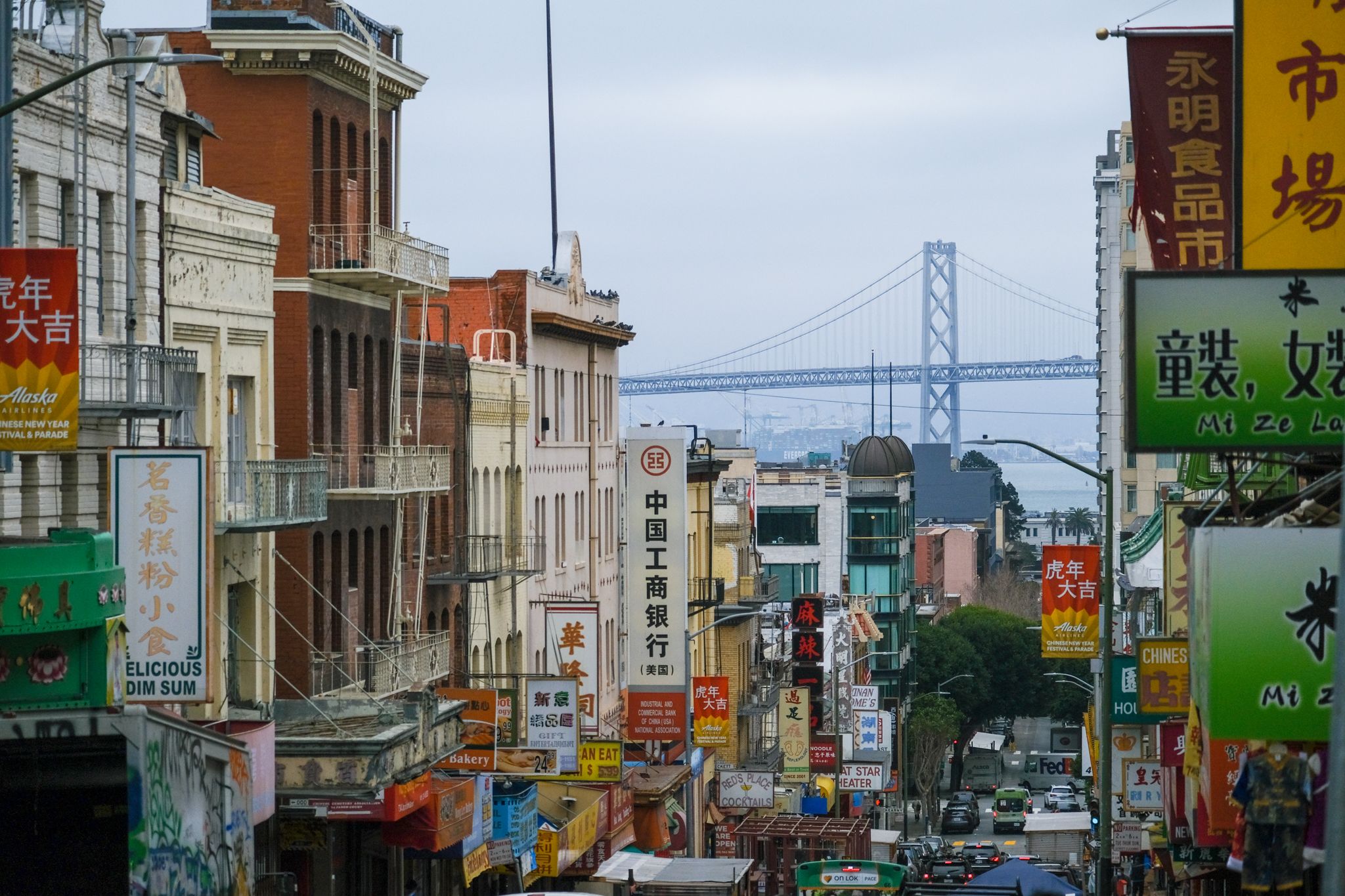
A Rift With Electeds
Both the school board recall and the recall of District Attorney Chesa Boudin attracted national attention and highlighted a powerful push against progressive politics from San Francisco’s Asian American voters.
Yet the current crop of elected Asian American leaders—including Assemblymember Phil Ting, Supervisor Connie Chan, and Supervisor Gordon Mar—did not stand with their constituents on these issues, particularly when it came to the Boudin recall.
“Chinese residents are voicing their concerns, but those Chinese leaders chose not to listen,” said Man Kit Lam, a public school parent from Hong Kong and a recall campaign activist. He worked for the school district before being laid off, and he volunteered in both recalls and became an outspoken figure after the high-profile case involving the theft of school board recall petitions.
Man Kit Lam speaks in favor of merit-based admissions at Lowell High School at 555 Franklin Street, the SFUSD headquarters in San Francisco, Calif., on June 22, 2022. | Camille Cohen/The Standard
Man Kit Lam speaks in favor of merit-based admissions at Lowell High School at 555 Franklin Street, the SFUSD headquarters in San Francisco, Calif., on June 22, 2022. | Camille Cohen/The Standard
Lam said the Chinese American community, especially the immigrant community, is considered less political, and they highly value education and public safety. He warns that if elected leaders are dismissive of these priorities, the community will rise up in voting.
“In a Chinese word, this is called 官逼民反, ‘the oppressive government forced the people to rebellion,” he said.
David Ho, a political consultant who worked for Boudin, does not think that San Francisco’s Chinese progressive leaders are “out of touch” with the community.
“The leadership is to the left of the community—it’s always been,” Ho said.
He added that the community “institutions” that train and support Asian American leadership—generally nonprofits that are more progressive than the average Chinese American voter—have been very successful in getting candidates elected.
On the west side of San Francisco, both the Richmond and Sunset districts—each of which is home to significant Chinese American populations that tend to be moderate in their political outlook—are now represented by progressive Chinese American supervisors Chan and Mar, respectively, as well as Assemblymember Ting.
Ho underlined the fact that Chinese American moderates couldn’t secure an elected seat on the west side and that the strong support of both recalls from the Chinese community was an “outlier” situation that did not show a pattern. He suggested that after the November election, there would be a clearer sense of the preferences of Asian voters.
The Left and Right of Ting, Mar, Chan
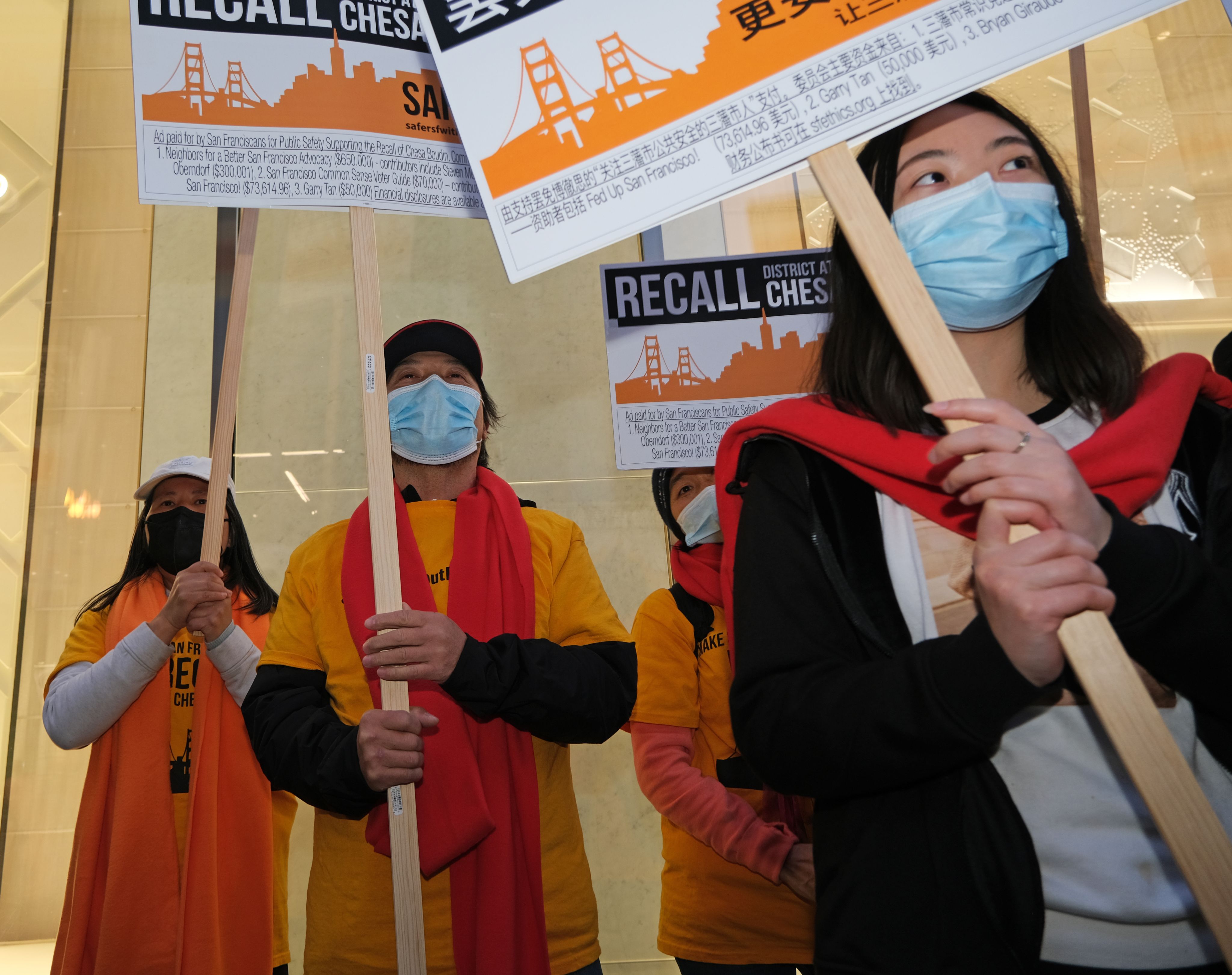
The Boudin recall, which split San Francisco in a 55% to 45% result, also showed a sharp difference between the Chinese American elected officials and many of the community members they represent.
Ting, Mar and Chan say they believe that Chinese American leadership in the city is well-represented, vibrant and strong. But when asked if they consider themselves more progressive, more to the left of many of their Chinese American constituents, each of the three gave The Standard slightly different explanations.
“Throughout my career, I’ve heard from people on the right who think I’m too far left, and people from the left who think I’m too far right,” said Ting, who has been in the state Assembly representing San Francisco’s west side for over a decade. “I think I have come to a middle ground that represents where most San Franciscans are.”
In his view, the Chinese community has strong representation in city politics and is diverse in its viewpoints. But Asian Americans, he said, must become more politically active and engaged in order to fight for issues that are important to the community.
Mar agreed that Chinese American elected officials have shifted over time to be more left than the community. Still, he said, he believes elected officials are very focused on the community’s concrete needs.
He pointed out that the pandemic has exacerbated existing challenges and created new ones for the Chinese American community, especially on issues like public safety and education.
The Chinese American community, he added, has always been “politically diverse” while still being able to come together around “our core values and issues.”
Chan—an immigrant elected in 2020 after defeating a moderate opponent by 125 votes—is never shy from speaking up on progressive ideas and is much more outspoken in supporting Boudin than the other two.
“I know not everyone would always see things eye to eye, but we must work together to find solutions that make our city better for everyone,” she said, adding that Chinese American political views are far from monolithic.
Facing the gap between the community and the elected officials, she slammed the “political opportunists” using fear, anger and misinformation among the Chinese American community to turn people against each other.
“I will always fight tooth and nail against dark money and political opportunists who want to destroy our democracy and tear down our communities,” Chan said.
Assemblymember Phil Ting during a ceremony at the Golden Gate Bridge Welcome Center Plaza on Thursday, April 13, 2017, in San Francisco, Calif. | Santiago Mejia/SF Chronicle via Getty Images
Assemblymember Phil Ting during a ceremony on Thursday, April 13, 2017. | SF Chronicle via Getty Images
Supervisor Gordon Mar announces a proposal for a Victim Services Language Bank at City Hall on Tuesday, May 17, 2022. | Camille Cohen/The Standard
Supervisor Gordon Mar at City Hall on Tuesday, May 17, 2022. | Camille Cohen/The Standard
District 1 Supervisor Connie Chan speaks at a Board of Supervisors meeting in City Hall of San Francisco on May 3, 2022. | Camille Cohen/The Standard
District 1 Supervisor Connie Chan speaks at a Board of Supervisors meeting in City Hall of San Francisco on May 3, 2022. | Camille Cohen/The Standard
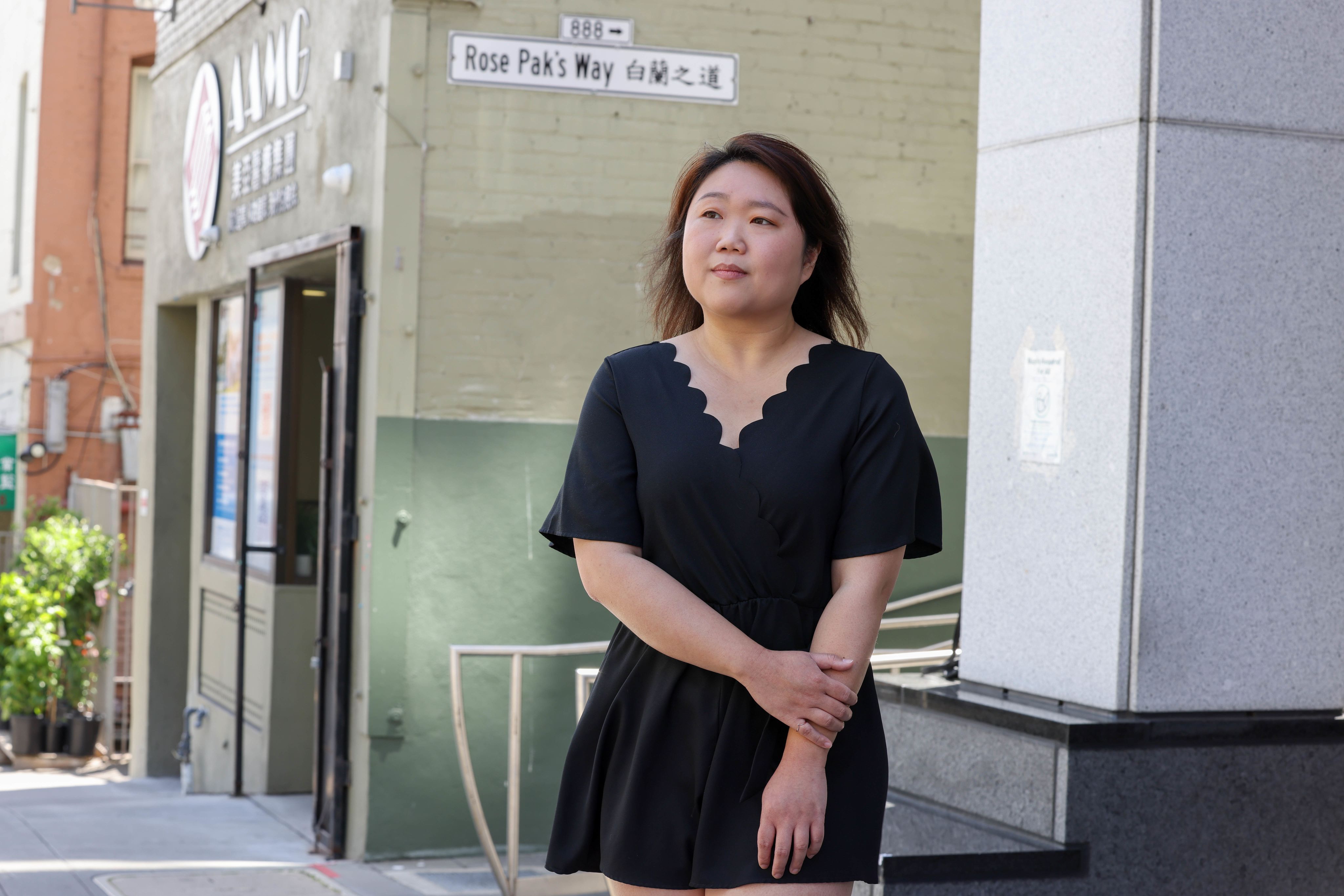
The Next Generation of Leaders
Amid the Covid crisis and the Stop Asian Hate movement, younger would-be leaders are just starting to step up—and some of them have a much more progressive bent than their predecessors.
Kitty Fong, president of the Rose Pak Democratic Club and the AAPI community education and relations manager at the DA’s Office, is one of the faces of this next generation.
“We have the same goals, but with a different approach and different policy ideas,” Fong told The Standard, acknowledging the challenges of selling progressive ideas on public safety to the more moderate Chinese community, such as work to end mass incarceration and mental health diversion instead of “tough-on-crime” prosecution. But she said she’s not giving up.
Fong, who was born in Hong Kong and moved to the U.S. as a teenager, said she got into community activism because she wanted to increase the political representation of immigrant women and to use her language skills to better inform Chinese American voters.
Her democratic club voted to oppose the recall and is considered the more progressive political group among several other Asian American-led coalitions.
On the other side, Amy Lee, a more moderate young activist and a recall supporter, started her political involvement as a sort of homecoming. Amy, a Chinatown native who used to work as a designer and barista, is now a full-time community activist.
“I feel like Asian Americans have always been victimized, especially the monolingual and elderly,” she said. That’s why she decided to join the movement to fight that discrimination.
After working for Bilal Mahmood’s state Assembly campaign, she said she’s now committed to her own nonprofit, called Dear Community, which aims to uplift Asian Americans, help Chinatown businesses and foster intergenerational connections among Chinese Americans.
But it’s not easy for her. As a newcomer to politics, she said “we are trying to do good things—but you have to earn your space.”
Activist Amy Lee. Provided by Andreas Zhou
Activist Amy Lee. Provided by Andreas Zhou
Fong and Amy Lee said they are not considering running for office. But another new-on-the-scene activist is keeping his options open.
Laurance Lee, a parent who became an activist during the school board recall effort, is eyeing some real power. He’s active on Twitter, writes op-eds for multiple local publications and frequently shows up at Asian community events.
“I am looking at some options in the near future,” he confirmed.
Laurance said he admires people who put themselves out there as potential political candidates and appreciates the civic servants sacrificing their own time and energy for the public.
“I am an advocate for good government,” he said, and running for office “is the most impactful way to help people and to improve our beloved city.”
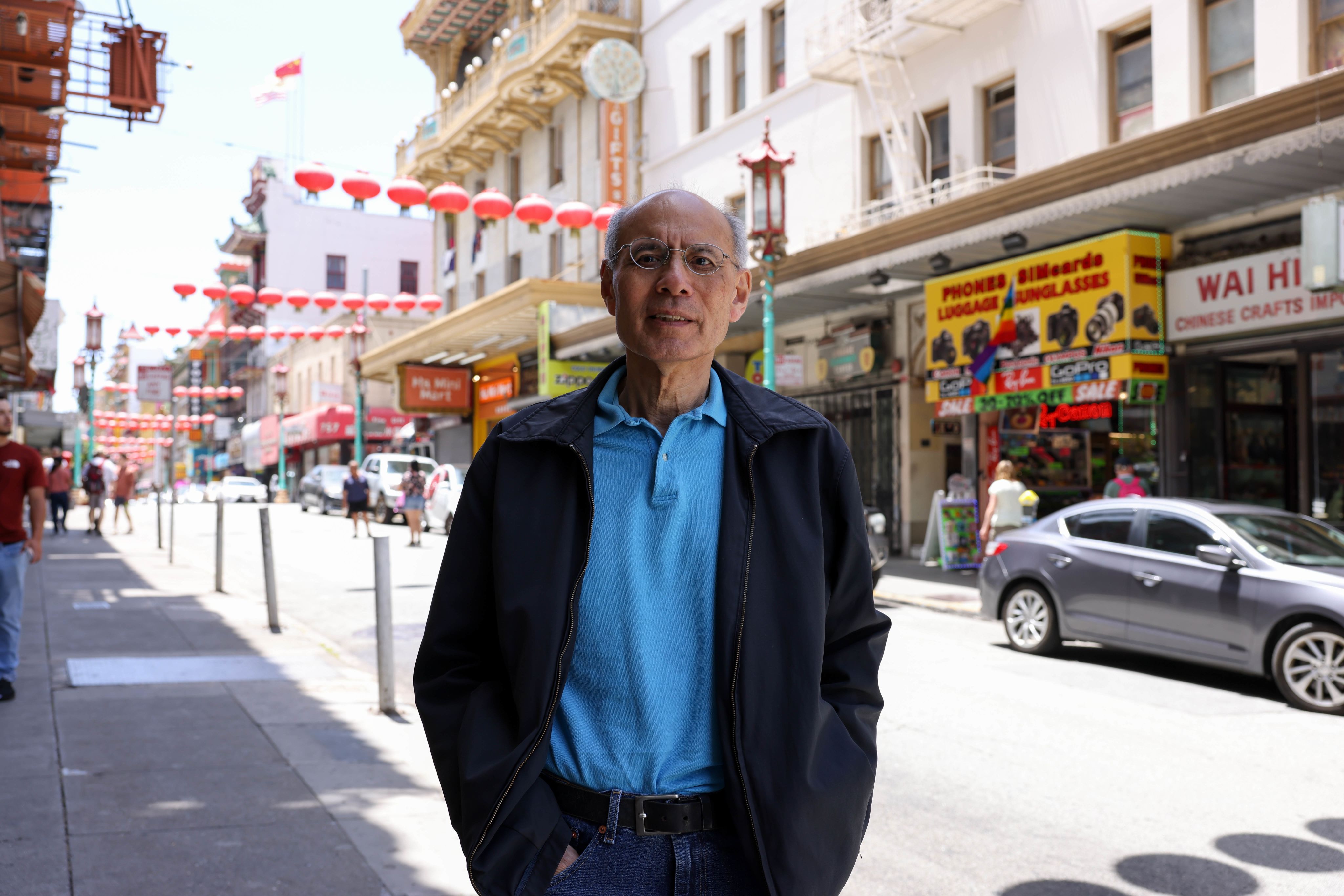
An Intergenerational Talk
William (Bill) Lee, a former city administrator who worked under three mayors, has some advice for these fresh faces.
“They really need to spend a lot of time to understand San Francisco's diversity,” he said, pointing in particular to Black, Latino and LGBTQ communities in the city and emphasizing the power of unity among minorities.
The Asian American voter base is no longer centralized in Chinatown, he noted, but has spread out citywide to the Richmond, Sunset and Visitacion Valley.
Lee said he missed Pak’s phenomenal power but also trusts that the new crop of leaders will bring needed change.
“Many think the Chinese are weak [and] won’t fight back,” Lee said. “But at the ballot box, we can show our extraordinary power.”
Han Li can be reached at han@sfstandard.com or on Twitter @lihanlihan.

